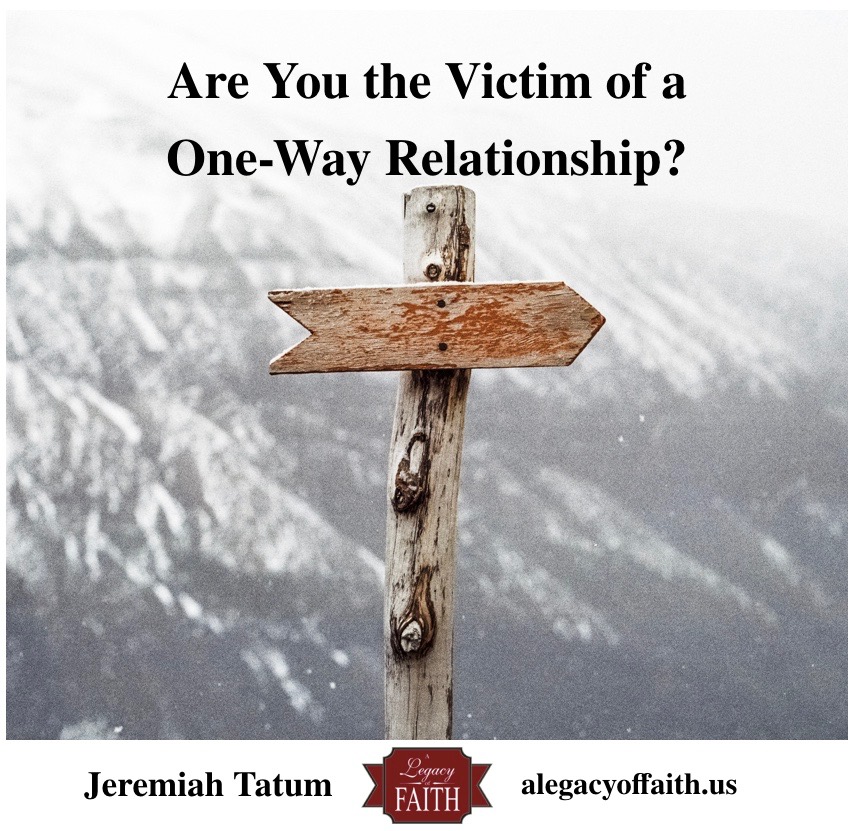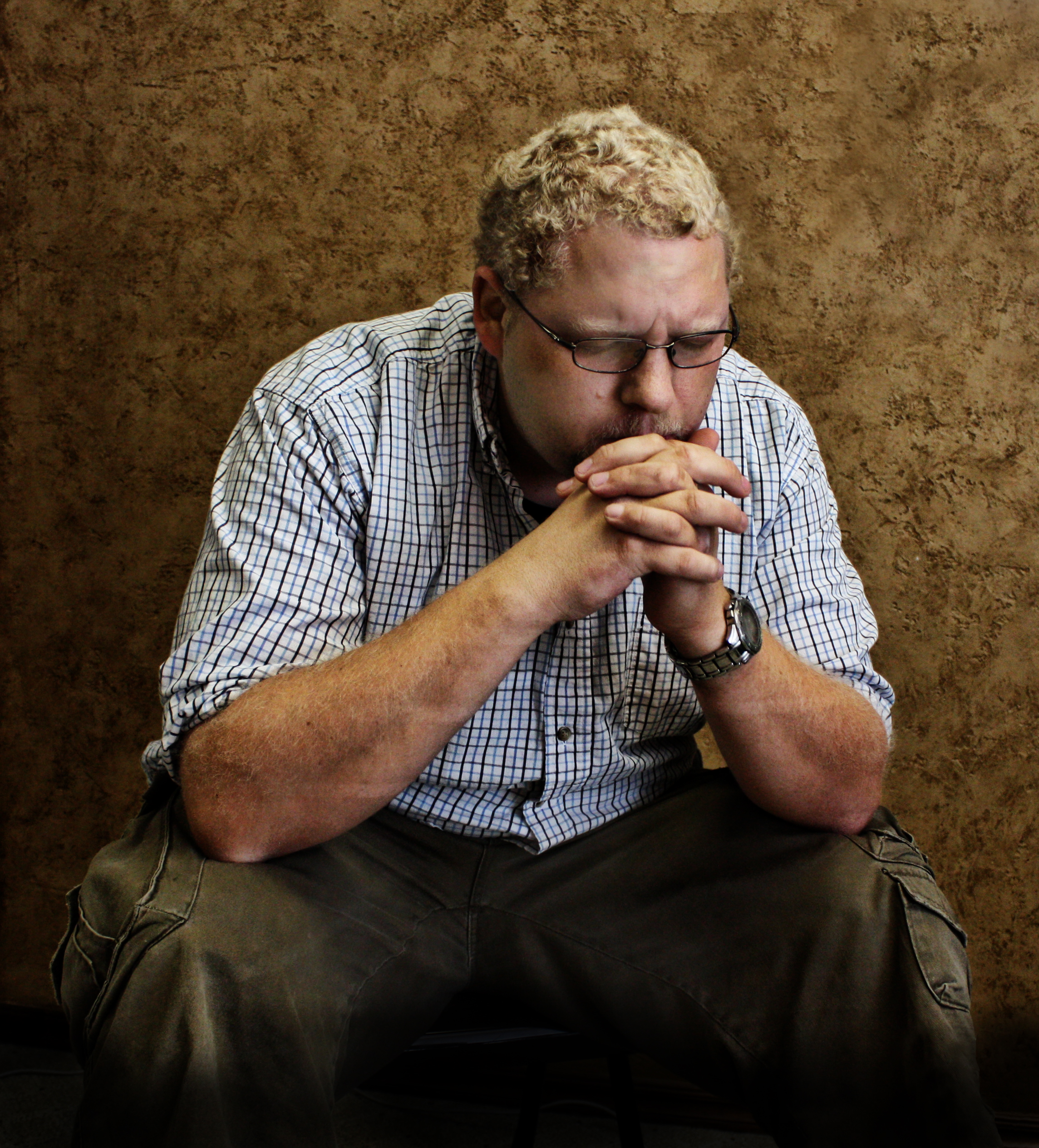Are You the Victim of a One-Way Relationship?

Over twenty years of counseling has brought some valuable insights to my ministry. One of those insights is that those who are struggling with their loved ones often feel as if they are in a one-way relationship. I’m not just speaking here of husbands and wives. I’m talking about all relationships: dating couples, parent-to-child and child-to-parent, sibling-to-sibling and friend-to-friend.
People get hurt when they are constantly giving and not receiving. They feel unloved and unappreciated. They often come to the conclusion that their love is unrequited and that the other person in this relationship doesn’t really know who they are or what they truly care about. This all translates to one terrible reality – although there is a relationship, they feel completely alone!
How does a person get themselves into the one-way relationship mess? Sometimes it is just a matter of choosing. We may be so desirous of being close to another person that we set all boundaries aside and go all in with our devotion even if the other person hasn’t chosen to be so dedicated. We may want more from the relationship than the other person wants, and we may convince ourselves that this other person loves us as much as we love them. It may be that we are born into situations where there is some dysfunction already occurring in our families with regard to equality and appreciation in interpersonal relationships. Thus we become a victim of patterned behavior that was in place even before we came into existence.
How do we change the tide in a one-way relationship? Well, what do you do when you are going the wrong direction down a one-way street? You back up and assess the safety of your current direction. All relationships take two people to exist. You cannot control the activity or the choices of the other person. If your relationship is in trouble, there are probably some things that you are doing that are contributing to its unhealthy status. Here are a few things you might want to try in order to improve your situation:
1. Don’t allow yourself to be treated disrespectfully. Proverbs 22:10 says, “Cast out the scoffer, and contention will leave.” It is one thing to be patient and endure persecution. It is another thing to allow yourself to be trampled on by someone who is supposed to love you. Take the Father’s example: God loves us but he also demands our respect and admiration.
2. Don’t be so available. “Do not give what is holy to the dogs; nor cast your pearls before swine…” (Matt. 7:6). There is a point at which it is unhealthy to continue to extend oneself far beyond the genuine interest or desire of someone else. Even Christ walked away from giving energy to the people who did not appreciate his efforts of love and compassion.
3. Don’t become dependent. “Commit your way to the Lord, trust also in Him, and He shall bring it to pass” (Psa. 37:5). This biggest mistake people make in their search for happiness is seeking to derive it from someone else. People hold on to relationships that are bad for them, hoping that things will pan out. But our clinging post is Christ and Christ alone. He is the one on whom we should and can always depend. Our joy must be derived in and through Him.
4. Don’t believe that constant fighting is normal. “Can two walk together, unless they are agreed?” (Amos 3:3). You may be in a relationship with a person who always wants to fight. Conflict may be how they seek to get their way. But putting away your weapons is a good idea. It takes two to have a disagreement. Peace will only be found by those who are dedicated to its discovery.
5. Increase the frequency of quality communication and conversation. When Paul and Barnabas were seeking to establish and strengthen the church in Antioch, it says, “They stayed there a long time with the disciples” (Acts 14:28). The two most important ingredients in a relationship are time and communication. There must be time for listening if we want to be heard. There must be time for talking if we want to communicate.
6. Create appropriate boundaries until trust is gained. “Keep your heart with all diligence…” (Prov. 4:23). Most people that are the victims of one-way relationships have never taken enough time for the other person to earn what they are willing to give. There is a reason God instructed us to marry before we give our whole selves up. We are supposed to save the most intimate part of ourselves only for the person who is willing to make a full commitment to obtain it. There is a part of you that should be retained until the other person has earned your complete trust.
Now, just for a moment, think about your relationship with God. Don’t you imagine that, based on your past behavior, God must have often felt that he was the victim of a one-way relationship? And yet He is the one SAFE relationship. He never leaves. He never forsakes. He always loves. He always forgives. He always keeps His promises. He never disappoints. He is the only SURE and absolute relationship that we are guaranteed for all of our earthly lives as well as for eternity.
Perhaps His steadfastness will help us to patiently endure when we feel like we are not getting what we deserve from others. And perhaps in His dedication to us, we can be reminded that the one relationship we need to put the most energy into is the one he has offered through Christ Jesus. He must forever and always be the supreme love of our lives. He is the “one-way.” He is the only way.
To Receive Every Article from A Legacy of Faith through Email for Free, Click Here
AUTHOR: Jeremiah Tatum


